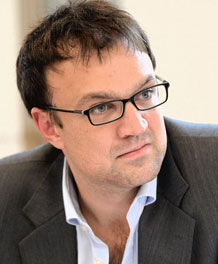For example Skidelsky defended alcohol and marijuana as certain goods. However it seemed as though his case was that these drugs were a means to goods, not good in and of themselves. For example he cited an author who wrote all his books while drunk, and how marijuana can cause one to think of ideas which stand up to "philosophical scrutiny." These examples focus on the specific ends: novels and thought--not on the experience of the drug as good in and of itself. Further using marijuana and drugs clearly aren't necessary conditions for writing good novels and having good thoughts. Neither are they necessary for good lives. Still perhaps they help, for example many persons (Roger Scruton's book comes to mind) defend the proposition that moderate alcohol use enhances life. Some (Carl Sagan) do the same for marijuana. Skidelsky also warned of the dangers of solipsism from drug use. On this he is spot on; drug use doesn't enhance moral behavior in any way, and has much ability to do the opposite. Like other forms of recreation it enables one to ignore moral obligations to others.
 Susan Blackmore defended not only marijuana, but powerful psychedelics. She stipulated, quite rightly that hallucinogens (psilocybin, LSD, Etc) can bring on quite powerful, changing experiences. I think tripping as such could properly be classified as religious experiences. Like religious experience she claimed they can be events in a life from which the tripper gains knowledge. In an article she claims and describes this phenomenon, pertaining to a specific LSD trip:
Susan Blackmore defended not only marijuana, but powerful psychedelics. She stipulated, quite rightly that hallucinogens (psilocybin, LSD, Etc) can bring on quite powerful, changing experiences. I think tripping as such could properly be classified as religious experiences. Like religious experience she claimed they can be events in a life from which the tripper gains knowledge. In an article she claims and describes this phenomenon, pertaining to a specific LSD trip: "Instead, the onslaught of images eventually taught me to see and accept the frightening depths of my own mind - to face up to the fact that, under other circumstances, I might be either torturer or tortured. In a curious way, this makes it easier to cope with the guilt, fear or anxiety of ordinary life. Certainly, acceptance is a skill worth having - though I guess there are easier ways of acquiring it."
She rather undercuts her argument by the last clause. If there is religious experience it is the experience itself that is valuable, not the knowledge. For as she acknowledges the knowledge could be gained otherwise, and there is in fact a good chance that it is false. For examples of the latter, if you feel like torturing yourself you may want to read Daniel Pinchbeck's book 2012 (which is in short druggie/jungian nonsense). Further many religious experiences cause knowledge of conflicting beliefs. There is a wide spectrum of Christian-Hindu-Anamistic-New Age etc. experiences which cause logically incompatible beliefs. This fact is enough to show that the actual knowledge will come from critical analysis that is independent of the religious experience. And analysis of thoughts that can come otherwise, without the physical and mental risks.
Peter Hitchen's was completely alone due to his antagonistic relationship with drugs. The conservative contrarian was probably the most interesting, because of this. He claimed that there was no war on drugs in the UK (A claim which I can't criticize or endorse. I am completely ignorant of the situation, and neither side made an entirely convincing case). He also mentioned the fact that marijuana can cause psychosis and can impair those who use it at a young age.This was a refreshing fact, that many manage to ignore. But this isn't relevant to issues of marijuana legalization for consenting adults; for we don't prohibit alcohol use for these reasons. So I am hardly convinced about his case against marijuana legalization. In fact quite the opposite. Since there aren't any sufficient reasons for making marijuana illegal to the public it shouldn't be illegal! Peter Hitchen's also made the banally stupid claim that addiction is just another word for "weakness of will." Apparently he is completely unaware of the work done by psychology and neuroscience on addiction. If he means by weakness of will something for which persons are responsible for he is completely wrong.
The anthropologist had little to say on the topic other than some nifty historical tidbits. That concludes my thoughts on the discussion.


No comments:
Post a Comment